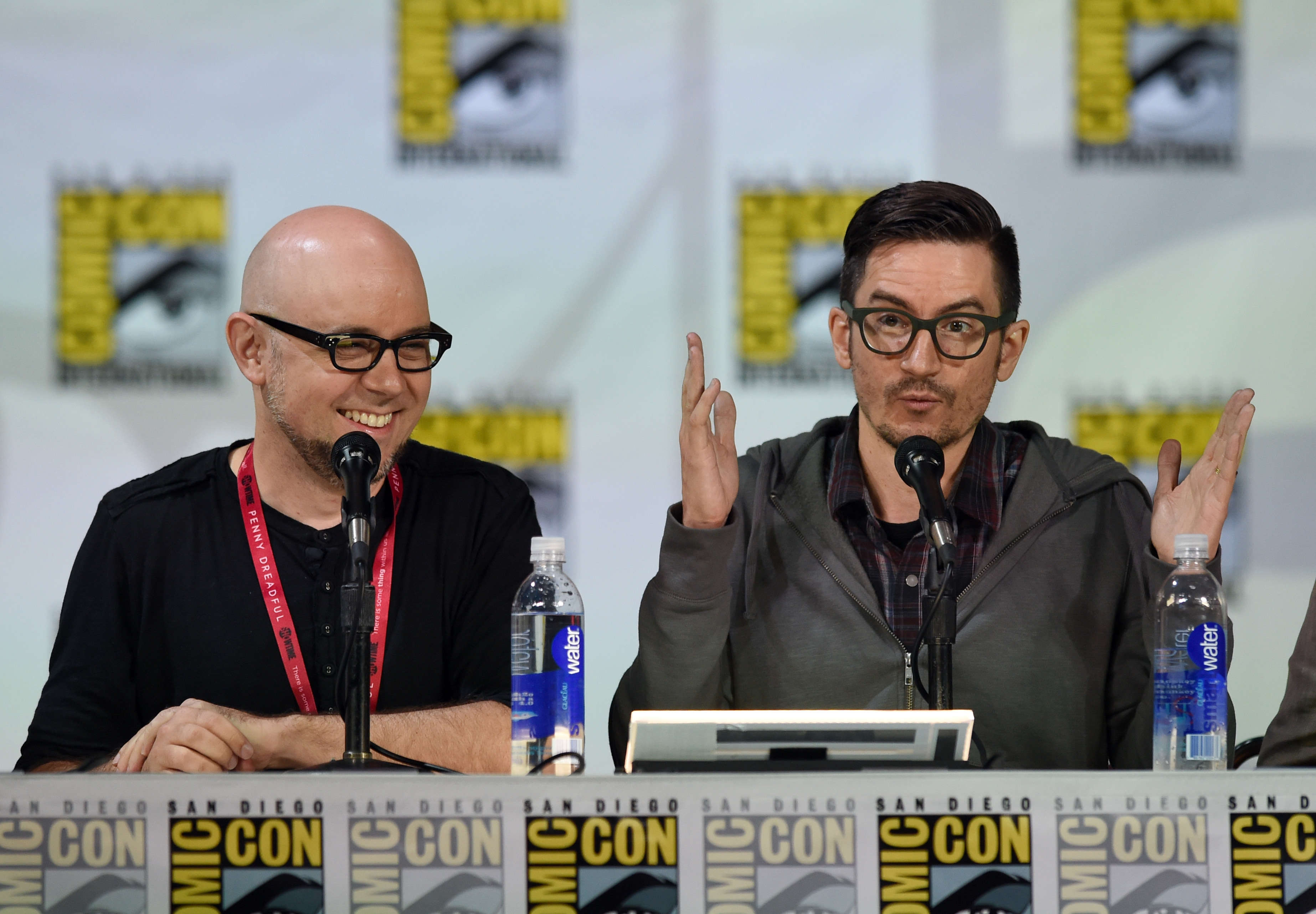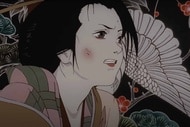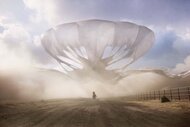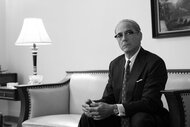Create a free profile to get unlimited access to exclusive videos, sweepstakes, and more!
Is Avatar: The Last Airbender anime? Creators Michael DiMartino and Bryan Konietzko weigh in
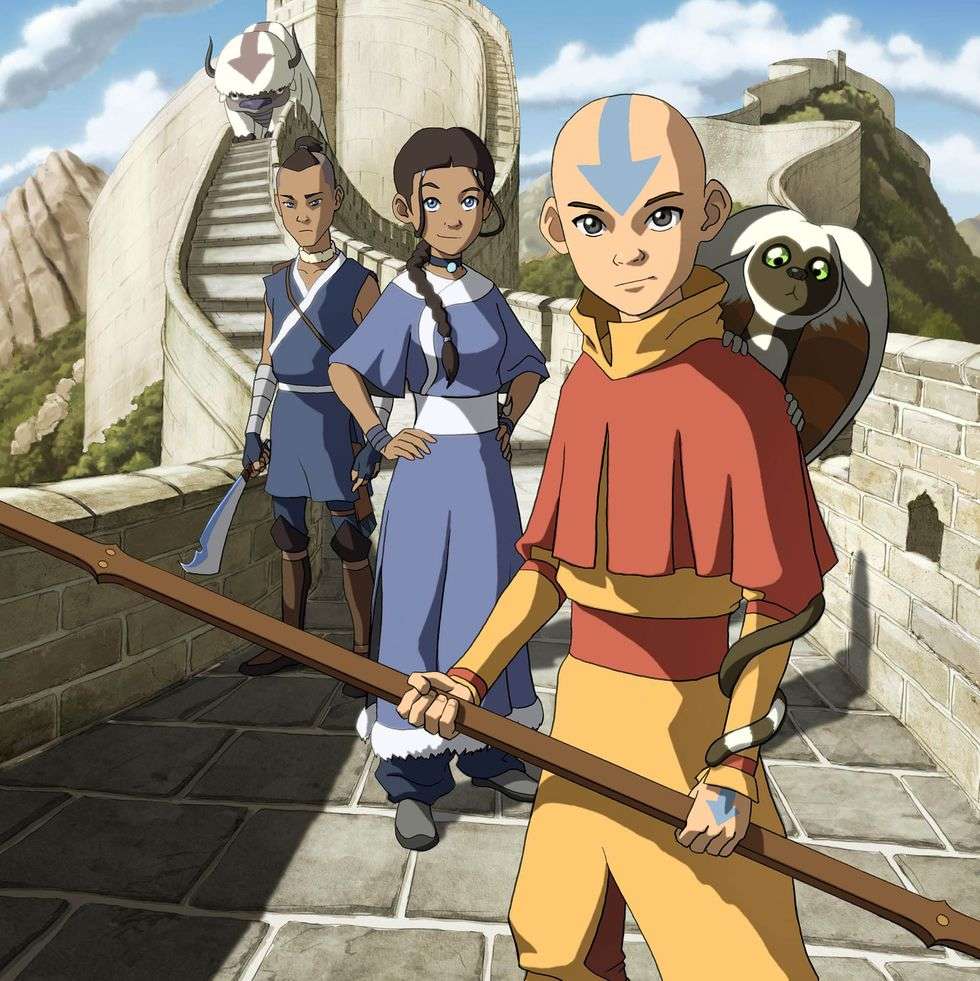
At some point or another, Avatar: The Last Airbender fans have had to ask themselves: is the show considered anime?
Well, creators Michael DiMartino and Bryan Konietzko don't quite know either.
"We wanted to do a love letter to anime. Not just copy it," explains DiMartino in Nickelodeon's new Avatar: Braving the Elements podcast. "In some ways I know it would have looked better if I had just copied stuff, but I was trying to do our little crummy version."
At co-host (and voice of Zuko himself) Dante Basco's assertion that the show could be considered "American anime," DiMartino states, "You could speak to 20 top directors in Japan... and I'd bet you get 20 different answers. That's also not a monolithic thing."
For Konietzko, it was less about whether their series fits within the genre, and more about what American animation could learn from it in order to grow and improve. "I'm looking at Furi Kuri in 2000 or 2001 and going, 'Okay, we're 20, 30 years behind here. Like, what are we doing?'" he says. "And 'How could we even get a little bit of this magic into an American show produced by an American studio?'"
And while both audiences and Hollywood itself are more cognizant about not just creating diverse and inclusive content, but also who gets to create it, in recent times, this wasn't always the case in the early 2000s when DiMartino and Konietzko were first working on the series. However, as Basco notes, while the creators may have made a few mistakes along the way, the show was well ahead of how it approached making art based on other cultures in a way that doesn't appropriate them, but celebrates them instead — which its legacy among fans continues to endure, even having made it one of the most-watched series on Netflix, days after its premiere.
DiMartino says they were conscious of the fact that they were both white men working on a series heavily influenced by different Asian cultures.
"We just naturally want to respect people and cultures," he explains. "Part of the reason we created [Avatar] was admiration of [Hayao] Miyazaki's films and Asian culture. So it came out of a love and appreciation of it. So it was just natural to try to honor it as best we could."
He also adds, "Sure, we made some missteps along the way, and now we're obviously even more aware and more conscious to do it right."
Konietzko agrees that they weren't always perfect, but says that their main focus was on trying not to 'other' the cultures they were depicting.
"Even the Avatar world isn't monolithic. It is very multicultural," he goes on to point out. "We are two white American dudes, but there isn't one person who could represent the entire Avatar world. It's very much about these different cultures coexisting, and the beauty and the pain that comes out of that. It's just about a world that's trying to find balance and trying to coexist. That's our default attitudes anyway."
This bodes well for all the upcoming new Avatar content that fans will be graced with, as DiMartino and Konietzko both helm Avatar Studios, a new studio that will focus on creating not just theatrical releases within that same fictional world but also shows for on-demand streaming. So while Netflix's live-action series won't have the original minds behind the animated show working on it, it does mean the possibility of following the stories of more avatars — especially those before Aang and after Korra. It also means the universe can grow more inclusive in other ways, such as introducing more queer characters, something that has only existed in recent comics.
Avatar: the Last Airbender and Legend of Korra is currently available to stream on Netflix.
